How To Build An Ecommerce App: Step-by-Step Guide
Mohit Mittal
Jul 20, 2022

The internet has completely transformed how people shop and how businesses operate. With more consumers turning to online platforms to buy and sell, the demand for eCommerce is at an all-time high. This growing trend has pushed many companies to create ecommerce app solutions that meet the needs of today’s digital shoppers.
What started as a simple exchange of information has now become a digital shopping hub. From electronics to groceries, everything is now available at your fingertips. While eCommerce Apps first appeared decades ago, their popularity has skyrocketed in recent years. Whether it’s ordering food, booking travel, or buying sneakers, people now prefer mobile shopping more than ever.
According to recent research, mobile eCommerce is expected to reach over USD 7.08 trillion by 2027. That’s why businesses from startups to large enterprises are racing to build an ecommerce app that offers customers a smooth, mobile-first experience. Whether you want to sell products directly or manage a supply chain, entering the app-based eCommerce space is a smart move.
To succeed, businesses are exploring advanced options like AI Shopping App Development to personalize user experiences. These modern solutions help increase sales, boost user engagement, and improve customer retention by offering features tailored to today’s digital consumers.
If you're a business owner, this is your time to act. From D2C Ecommerce Development to full-scale marketplaces, mobile apps offer huge opportunities for growth. The question isn't "why build an app?" it’s how to build ecommerce app that truly works for your business and audience.
This blog is your complete A to Z guide on how to make shopping app that stands out in a competitive market. We’ll cover everything from planning and features to choosing the right tech and team.
Let’s get started!
What is E-commerce App Development?
E-commerce app development is the process of creating mobile apps that help businesses sell products or services online. These apps act as digital stores, allowing users to browse, compare, and purchase items from their devices.
For companies, these apps are more than just online shops they’re powerful tools to connect with customers and grow globally. With services like B2C Ecommerce Development, businesses can build strong digital storefronts that improve user engagement and boost sales.
As mobile shopping grows, understanding how to build an ecommerce app is crucial for success in today’s market.
Types of E-commerce Applications
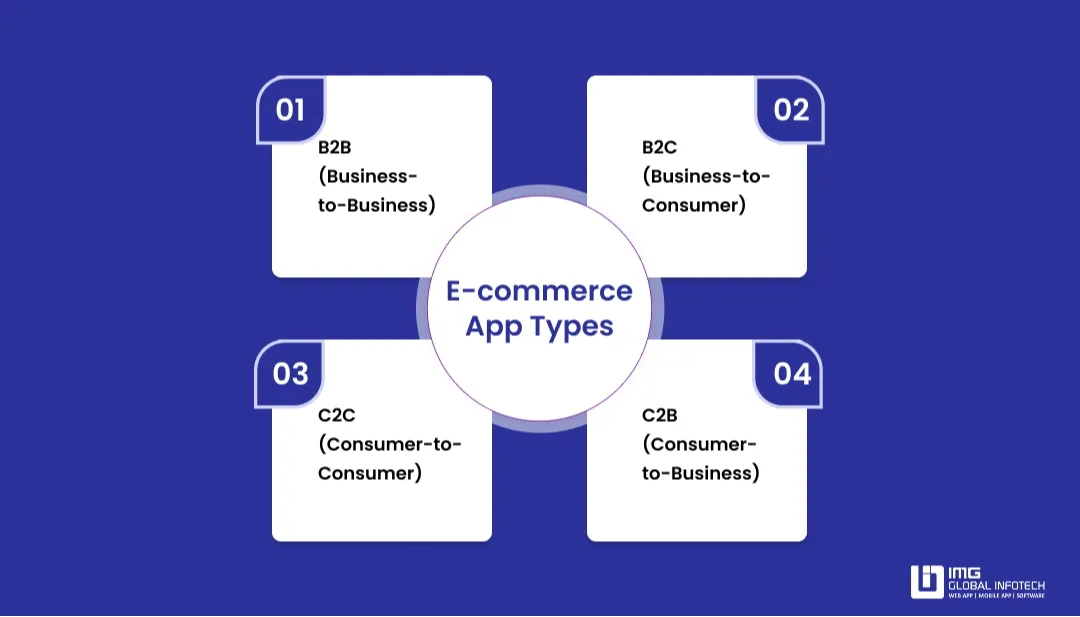
The type of e-commerce app you need depends on your business model and goals. Each type comes with different features to manage specific operations effectively. So, if you're planning to create ecommerce app for your business, it will likely fall into one of these four main categories:
B2B (Business-to-Business)
B2B e-commerce apps are designed for transactions between businesses. These platforms help companies sell products or services that are often used as raw materials or supplies by other businesses. If your goal is to target other companies, investing in B2B Ecommerce Development is the right choice. Popular examples include Alibaba, Quill, and Amazon Business.
B2C (Business-to-Consumer)
B2C apps help businesses sell products or services directly to customers. These platforms offer a seamless shopping experience, letting users browse, order, and pay through the app. With B2C Ecommerce Development, companies can reach a wider audience and manage sales efficiently. Popular B2C apps include Amazon, Walmart, and Dominos.
C2C (Consumer-to-Consumer)
C2C apps allow individuals to sell items directly to other consumers, usually through third-party platforms. These apps often support listings, auctions, or classified ads. If you're planning to build ecommerce app for peer-to-peer selling, this model fits well. Well-known examples are OLX, Craigslist, and eBay.
C2B (Consumer-to-Business)
C2B apps enable individuals to offer services or content to businesses. These apps support freelancers, creators, and contributors in monetizing their skills or resources. Platforms like iStock, Clutch, and GitHub are strong examples. Businesses looking to benefit from this model often hire ecommerce developers to build tailored platforms.
Why It’s Important to Create an E-commerce App
In today’s fast-moving digital world, choosing to build an ecommerce app can give your business a strong edge. Here’s why e-commerce app development is a smart move:
-
Boosts Brand Awareness
A mobile app makes your brand more visible and accessible, helping you build stronger customer loyalty.
-
Improves User Experience
Well-built apps load quickly and work smoothly, offering a better experience than most web versions.
-
Enables Personalized Communication
Send custom offers and updates based on user behavior to keep your customers engaged.
-
Gives Access to User Insights
Track customer activity and preferences to improve your strategy and app features.
-
Drives Higher Engagement
Apps with smart features and intuitive design lead to better interaction and retention.
-
Increases Conversions
A streamlined design with easy navigation helps users complete purchases faster, boosting sales. If you're exploring Marketplace Ecommerce Development, this becomes even more crucial.
-
Reduces Long-Term Costs
When you make ecommerce app with efficient features, it reduces manual work, lowers operational costs, and improves inventory management over time.
Must-Have Features for E-commerce App Development
To build ecommerce app that delivers great results, your development team must include essential features that improve both user experience and business operations. Here are the key features your e-commerce app should have:
-
User Registration & Login
-
Order Processing
-
Inventory Management
-
Shipping Integration
-
Real-Time Order Tracking
-
Shopping Cart
-
Client Management
-
Online Payment Options
-
One-Page Checkout
-
Cart Abandonment Handling
-
Data Analytics
-
Push & Popup Notifications
-
Social Media Integration
Whether you're focusing on D2C Ecommerce Development or scaling to a larger marketplace, including these features ensures smoother shopping experiences and higher conversion rates.
Step-by-Step Process for Seamless E-commerce Mobile App Development
Big names like Amazon or Shopify may dominate the market, but with the right strategy, you can build a successful app that stands out. Here’s a step-by-step approach to how to create an ecommerce app that delivers long-term value:
Step 1: Research Your Market
Thorough research helps you understand your audience, competitors, and market needs. This is key to selecting the right platform and features.
Step 2: Define Business Goals
Before you start, ask: What problem are you solving? Who is your target audience? How will you measure success?
Step 3: Choose the Right Platform
Select whether you want to build for Android, iOS, or both. Consider frameworks, database options, and development costs. If scalability is a goal, Marketplace Ecommerce Development may be the ideal route.
Step 4: Decide Feature Set
Based on your research, list the features your users expect. This ensures your app fills market gaps and provides value.
Step 5: Focus on UI/UX Design
Your app should offer a smooth, intuitive, and visually appealing shopping experience. Good design builds trust and brand identity.
Step 6: Build an MVP
Start with a Minimum Viable Product (MVP). This early version helps you test ideas, get feedback, and reduce risk.
Step 7: Collect User Feedback
Once your MVP is live, gather feedback. It helps you learn how users interact with your app and highlights areas for improvement.
Step 8: Iterate and Improve
Continuously update your app based on feedback and trends. Regular improvements help you stay competitive and meet user expectations.
Whether you're targeting direct consumers or planning D2C Ecommerce Development, following these steps will help you build an ecommerce app that’s efficient, scalable, and future-ready.
Key Challenges in E-commerce App Development
While eCommerce App Development Company solutions open doors to growth, there are some common challenges that developers and businesses often face:
-
Operational Instability
Skipping regular updates and testing can cause app crashes and poor performance, hurting the overall user experience.
-
Supply Chain Issues
Delays or errors in syncing real-time inventory can lead to order problems, frustrating customers and impacting your brand’s reliability.
-
Data Privacy Risks
Without strong security measures, apps can become vulnerable to data breaches, risking customer trust and legal issues.
-
Outdated Technology
Not using tools like AI or AR can limit user engagement. For example, if you're missing features from AI Shopping App Development, your competitors may offer a more interactive experience.
Important Aspects to Consider in E-commerce App Development
Building a successful app takes more than just good design. Here are three key areas to focus on during ecommerce apps development:
1. Data Security
Your app handles sensitive customer details like names, addresses, and payment information. It’s crucial to protect this data using security practices such as private clouds, access controls, and alert systems to maintain trust.
2. Scalability
As your user base grows, your app must be able to handle the increased load. Many businesses forget to plan for growth early, but designing a scalable architecture is vital especially if you're planning to build an ecommerce app that supports high traffic.
3. Stability
Frequent crashes can lead to a bad user experience. To ensure app stability, release timely updates, gather feedback, test thoroughly, and make improvements through iterations.
Understanding the E-commerce App Development Cost
With mobile shopping on the rise, many businesses now hire ecommerce developers to build apps that increase reach and revenue. But a common question is: how much does it actually cost to develop one?
The cost of how to build an ecommerce app depends on several factors, but generally, it ranges $15000+, based on complexity and features. Here's a breakdown:
-
App Conceptualization
This stage involves market research, competitor analysis, and defining your unique selling points.
-
UI/UX Design
Clean layouts, product visuals, and smooth checkout experiences matter.
-
App Development
A basic app may cost around $5,000 to $8000, while a feature-rich or tech-heavy app can go up to $15,000+. This includes tech stack, cloud services, and development time. Companies often explore B2C Ecommerce Development at this stage.
-
Testing and Deployment
Around 12–13% of the total budget goes into quality testing.
Conclusion
E-commerce apps are no longer a luxury, they're a necessity for businesses aiming to stay competitive in the digital marketplace. Whether you’re planning B2C, B2B, D2C Ecommerce Development, or even a large-scale Marketplace Ecommerce Development, having a well-built app can help you grow faster, engage better, and sell smarter. From choosing the right features to understanding the development cost, every decision matters in creating a successful app.
If you're ready to build an ecommerce app or want expert help to bring your idea to life, IMG Global Infotech is here to guide you. With years of experience in delivering top-notch ecommerce apps, our team of skilled developers ensures scalable, secure, and high-performing solutions tailored to your business goals.
Let IMG Global Infotech be your trusted eCommerce App Development Company from idea to launch, and beyond
-
 Hire Gold Investment App Developers: Cost, Skills & Benefits
Hire Gold Investment App Developers: Cost, Skills & Benefits
-
 Thinking of Building a Fintech App? A Complete Guide to Features, Costs, and Success
Thinking of Building a Fintech App? A Complete Guide to Features, Costs, and Success
-
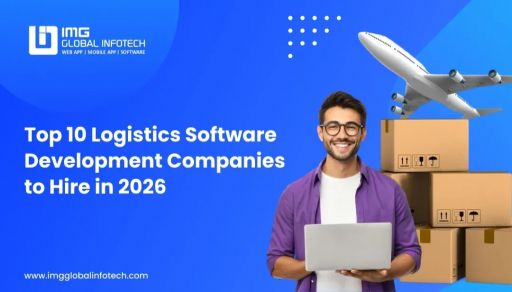 Top 10 Logistics Software Development Companies to Hire in 2026
Top 10 Logistics Software Development Companies to Hire in 2026
-
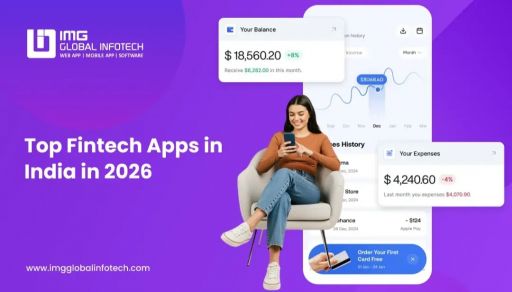 Top Fintech Apps in India in 2026
Top Fintech Apps in India in 2026
-
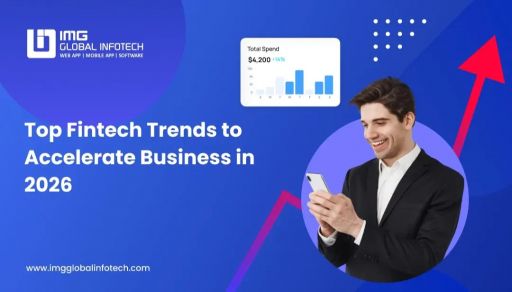 Top Fintech Trends to Accelerate Business in 2026
Top Fintech Trends to Accelerate Business in 2026
-
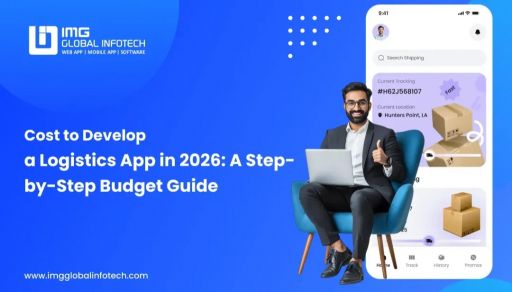 Cost to Develop a Logistics App in 2026: A Step-by-Step Budget Guide
Cost to Develop a Logistics App in 2026: A Step-by-Step Budget Guide
Mohit Mittal is the co-founder of a leading IT company with over a decade of experience in driving digital transformation and innovative tech solutions. With a strong background in software development, Mobile app development, E-commerce, business strategy, and team leadership, Mohit Mittal is passionate about helping businesses scale through technology. When not solving complex tech challenges, he enjoys sharing insights on emerging trends, entrepreneurship, and the future of IT.






